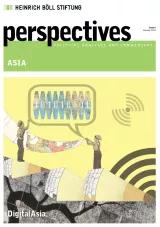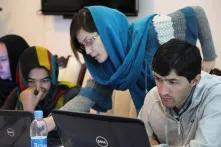The Prevention of Electronic Crimes Act 2016 was the subject of much resistance. While it aims to counter rampant online harassment and terrorist content, it drew criticism for severely impacting citizens’ rights to expression and privacy.

This article is part of our special on Digital Asia.
On August 11, 2016, the Prevention of Electronic Crimes Act (PECA) was passed by the National Assembly of Pakistan. A controversial piece of legislation, PECA may go down in history as one of the most hotly debated laws. However, the debate was not a natural outcome of what a democratic legislative process should be. The attention PECA received was primarily because its authors and movers tried to keep the legislative process secretive while avoiding consultations every step of the way.
Resistance to making the bill public, circulating outdated versions – even with parliamentarians – and then bulldozing it through the parliamentary committee and lower house of parliament were some of the tactics employed by the government to prevent any debate or scrutiny of the proposed law. Opposition parties, who were initially fierce in their resistance, ultimately met the government halfway and agreed to lend support to the bill with some amendments. The amendments were cosmetic, but the self-satisfying justification that the amendments would check abuse allowed it to sail through the Senate – the upper house of parliament – which enjoyed an opposition majority. After the rights and business community called out the opposition parties on this, there was a change of heart when the bill came up for a vote in the lower house of parliament. Though the opposition parties voted against it, it was too late. The ruling party’s two-thirds majority in the National Assembly ensured that PECA would see the light of day.
Why is PECA more sinister than earlier cybercrime legislation in Pakistan?
What makes PECA markedly different from earlier versions of (now defunct) cybercrime laws is that the former laws dealt primarily with computer-related crimes, whereas PECA introduced sections that criminalize speech and give authorities unchecked powers to curtail and prosecute it.
The justification for these sections was the need to bring all legislative efforts in line with the 12-point National Action Plan, which was issued by the government in response to the terrorist attack on the Army Public School in Peshawar in 2014, when more than 141 people, mostly school children, were killed. Three phrases in particular became siren calls to rally support for the law: the need to check extremist content, prosecute hate speech, and curb online harassment of women.
One of the concerns with PECA is whether, on principle, some of the powers given to authorities should lie with them in the first place. For instance, Section 37 of PECA gives unbridled powers to the Pakistan Telecommunications Authority (PTA) to block or remove online content, thereby restricting the right to freedom of expression, as guaranteed by Article 19 of the constitution. The PTA has a history of censorship and making requests to foreign platforms to block and remove content. The specific instances of speech and content that fall within or outside the exceptions listed in Article 19 are left to the sole discretion of an executive authority that functions directly under the government and receives policy directives from the Ministry of IT and Telecommunications. The PTA now has the ability to exercise usurped power to make judgment calls as to how Article 19 is to be interpreted and applied, and decide what may or may not be accessed or consumed by internet users in Pakistan, placing a legislative and judicial function in the domain of a single government authority.
Whereas Section 37 extends unchecked powers, other sections of PECA impose criminal penalties on certain kinds of speech. Section 20 – “Offences against the natural dignity of a person” – introduces criminal defamation through a vaguely worded section that stipulates a three-year jail term and a fine that runs into the millions of rupees. Its broad language enables misuse to settle scores and/or take dissidents to task. Moreover, although prosecution of the offense lies with the courts, complainants can at the same time petition the PTA to remove and block the content in question. Under the law, the PTA can act unilaterally against such content, without first requiring a court order. This procedure gives the state yet another tool for dealing with content that is not palatable.
The noose tightens
In January 2017, five bloggers disappeared. The reason for their disappearance is thought to be linked to what were anonymous Facebook pages, allegedly used by them, to spread “anti-state” propaganda. Soon the pages, the activity, and their alleged administrators were accused of publishing and spreading blasphemous content. The campaigns that were run against them made the same claims about the activists advocating for their release. These rights activists were vilified online and on television, accused of supporting blasphemers and of committing blasphemy themselves, simply for maintaining that due process of law should apply to all and that extralegal measures must not be used; if anyone was indeed guilty of a crime, they should be charged and prosecuted. But despite reports to both the PTA and the Federal Investigation Agency (FIA), no action was taken against the people operating the accounts and pages running such campaigns, nor were measures taken to block the sites themselves, thereby putting the activists’ reputations and lives at risk. Instead, the law and authorities took action against the Khabaristan Times, a satirical news website. Invoking the powers of Section 37, the site was blocked on the grounds that it published “anti-state” content.
Although PECA was not used to charge the bloggers, the incident signaled that speech on social media was under scrutiny and that measures – even if extralegal or devoid of due process – would be used not only to curb speech, but also to hold the alleged perpetrators to account. This created an environment of fear.
Pressure kept mounting through the courts as well, as a result of petitions regarding the availability of blasphemous material online. The then-Minister for Interior, Chaudhry Nisar, threatened to shut down social media platforms if they refused to comply. The PTA put out SMS alerts saying that blasphemy was a punishable offense, and that such material as well as the persons engaged in spreading it must be reported. In April 2017, Mashal Khan, a student of Peshawar University, was lynched at his university. He had been accused of posting blasphemous content from his social media accounts – accounts that he said were fake and had put out content in his name.
These incidents struck fear in the hearts of people. Zero tolerance for dissent was clear, but now it came with the very real possibility of being slapped with dangerous allegations of blasphemy and threats of being lynched for something one might not have done at all. A mere allegation, a hacked account, or a fake account in one’s name was enough for the pronouncement of guilt, which could lead to legal consequences, and even death at the hands of a mob. During this time, many people deactivated their social media accounts and/or became silent on “contentious issues.” Self-censorship became the viable option as a means of self-protection for many.
The intended consequence of PECA
As time progressed, the intent behind the law began to reveal itself. There came a wave of detentions. Political activists and journalists were issued summonses to appear before the counter-terrorism wing of the FIA for an investigation into “anti-state” activity. They were asked to appear with their electronic devices. In some cases, these were seized and searched – without first obtaining a warrant, as required under law. A list of 200 Facebook pages and Twitter accounts was put together by the FIA’s counter-terrorism wing, comprising those allegedly engaged in propaganda against the armed forces and state institutions. A case under Section 20 of PECA was lodged against a political activist in Lahore accused of such propaganda. With this, PECA’s intended aim was realized.
In the name of protecting the people, what the state did through PECA was amass powers to protect itself from criticism, strip citizens of speech and privacy rights, and subject them to the discretionary powers of investigative agencies.
Whither PECA?
Although the state apparatus was quick to act to advance its own aims under PECA, one witnessed a sluggish approach when it came to litigants seeking relief under the law for its stipulated aim: to curb harassment.
Regarding harassment, the narrative went like this: Because there was no law, perpetrators knew they would go unpunished. Once the law was introduced, it would serve as a deterrent, there would be a decline in the number of crimes, and people would be charged for them.
In the first few months after the passage of PECA, the reports of arrests of those involved in online sexual harassment (charged under Section 21) was a somewhat frequent occurrence. But beyond this hype, progress was slow. Just as the PTA and FIA took no action against people for the pages and accounts vilifying activists and journalists, citizens routinely complained of not hearing back for long periods after submitting their complaints – in cases that, to them, required urgent attention.
After the complaints and arrests came the trial stage. However, the trials could not commence because the special courts set up under PECA had not been notified about their new designation – a process the government was supposed to have initiated. This too was a realization that came later: Once cases made their way to court, litigants discovered that the judicial officers had no jurisdiction to try them. The official notification for the designation of courts was issued on March 31, 2017, seven months after the passage of a law that was deemed very urgent. In Sindh, there was no clarity until May 2017, when cases began getting transferred to the designated courts. Until June 2017, courts were in a state of disarray, unable to determine jurisdiction in some cases – whether they were to be tried by the magistrate or the court of sessions. This was precisely the reason rights and industry groups recommended that a six-month training session on the technical and legal aspects be mandatory for any judicial officer before whom PECA cases would go. But, like several other recommendations, this too had been disregarded.
For months on end, litigants and their families showed up, only to leave with yet another date for their case. It was not until September 2017 that trials under the law commenced in Karachi. Court records show that the reason for delays and adjournments in cases is due to the absence of the state prosecutor, who rarely shows up to hearings. Part of this is due to the fact that there is just one state prosecutor to handle all the cases for the province. This came after the insistence by the government to make sexual harassment a cognizable offense in which the state is a party and not the individual complainant, authorized to arrest people without warrant and lead the prosecution. An increase in the number of trained prosecutors to share the load was not part of the planning. Similarly, forensic reports in these cases remain unavailable due to a backlog and a lack of capacity.
Though many litigants hired private counsel to move their cases along, procedure requires the state prosecutor to be present for a matter to proceed. Many litigants now want to settle rather than go through the arduous process of the law, but the law does not give them that option either.
The solution to every problem is not a legal one, and what seems convincing on paper usually does not reflect on-the-ground realities and the mechanics of the system it needs to engage with to deliver. What was presented as a beacon of hope to hapless victims of online crimes – blackmail and harassment in particular – became a curse for those seeking relief.
Control rather than relief
Every criticism of the law as well as all the fears – which were labeled as unfounded – have come to pass. During a discussion in July 2017, senators raised the issue of the misuse and misapplication of PECA, calling for scrutiny of the law and requiring the FIA to submit its report. August 2017 marked one year since the passage of PECA. Under PECA, the FIA is supposed to present both houses with a biannual report – the first of which is still awaited.
PECA is a classic example of what is wrong with the law-making process and why it is never wise to accept at face value any legislative attempts in the name of “national security” and “for the public good.” The intent behind PECA was always to control rather than provide relief to the average person – and it is this intended aim that is being pursued.
This article is part of our special on Digital Asia.



